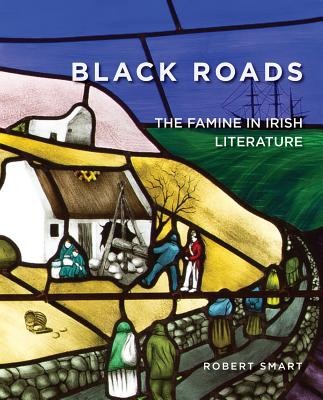
- We will send in 10–14 business days.
- Author: Robert Smart
- Publisher: Cork University Press
- ISBN-10: 099046864X
- ISBN-13: 9780990468646
- Format: 23.1 x 27.9 x 0.3 cm, minkšti viršeliai
- Language: English
- SAVE -10% with code: EXTRA
Reviews
Description
Ireland's Great Hunger Museum at Quinnipiac University publishes the Famine Folios, a unique resource for students, scholars and researchers, as well as general readers, covering many aspects of the Famine in Ireland from 1845-1852--the worst demographic catastrophe of nineteenth-century Europe. The essays are interdisciplinary in nature, and make available new research in Famine studies by internationally established scholars in history, art history, cultural theory, philosophy, media history, political economy, literature and music.
The Great Hunger was the most gothic event in Ireland's history and has haunted Irish literature ever since. In the struggle to resist the diminishment of this tragic episode in Ireland's colonial history, Irish Gothic writers preserved the memory of the Famine when a general silence prevailed among historians and authors of the Victorian novel. Both Irish Gothic literature and the work of the modernists (Joyce, Yeats and Beckett) resonate with the cultural memory of the suffering of millions, either lying in unmarked graves or forcibly transplanted to a harsh new world. Black Roads traces the impact of the Famine on Irish literature from William Carlton's The Black Prophet (from which the title is taken) to more contemporary work by authors like Patrick McCabe, Seamus Heaney and Eavan Boland, and playwrights like Tom Murphy, Conor MacPherson and Marina Carr. Post Famine, Black Roads argues, all Irish literature is about the Famine, leaving the discussion about what "Irishness" means centered on what Seamus Deane described as "what the Famine means."
- Author: Robert Smart
- Publisher: Cork University Press
- ISBN-10: 099046864X
- ISBN-13: 9780990468646
- Format: 23.1 x 27.9 x 0.3 cm, minkšti viršeliai
- Language: English English
Ireland's Great Hunger Museum at Quinnipiac University publishes the Famine Folios, a unique resource for students, scholars and researchers, as well as general readers, covering many aspects of the Famine in Ireland from 1845-1852--the worst demographic catastrophe of nineteenth-century Europe. The essays are interdisciplinary in nature, and make available new research in Famine studies by internationally established scholars in history, art history, cultural theory, philosophy, media history, political economy, literature and music.
The Great Hunger was the most gothic event in Ireland's history and has haunted Irish literature ever since. In the struggle to resist the diminishment of this tragic episode in Ireland's colonial history, Irish Gothic writers preserved the memory of the Famine when a general silence prevailed among historians and authors of the Victorian novel. Both Irish Gothic literature and the work of the modernists (Joyce, Yeats and Beckett) resonate with the cultural memory of the suffering of millions, either lying in unmarked graves or forcibly transplanted to a harsh new world. Black Roads traces the impact of the Famine on Irish literature from William Carlton's The Black Prophet (from which the title is taken) to more contemporary work by authors like Patrick McCabe, Seamus Heaney and Eavan Boland, and playwrights like Tom Murphy, Conor MacPherson and Marina Carr. Post Famine, Black Roads argues, all Irish literature is about the Famine, leaving the discussion about what "Irishness" means centered on what Seamus Deane described as "what the Famine means."


Reviews